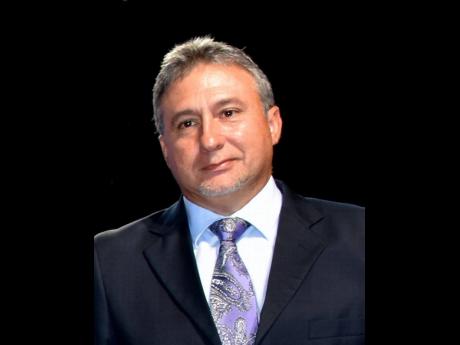CDB grant stirs up fuss about regional white sugar
The April 2 announcement of a more than US$97,000 gift from the Caribbean Development Bank, CDB, to Caricom for a study on plantation white sugar has Jamaican manufacturing representatives lining up on different sides of the hot-button issue.
The funds from CDB are to finance a review of the plantation white – a variant produced by one Caricom member – regarding its suitability for regional manufacturing.
But some companies see it as potential interference in their commercial affairs.
“We cannot dictate to manufacturers what raw materials they must and must not use,” said Metry Seaga, head of the Jamaica Manufacturers and Exporters’ Association, JMEA.
“We have international drink manufacturers and international manufacturers of all types in Jamaica and across the region. We can’t be dictating to Coca-Cola or Pepsi, for example, that they must use this particular sugar because we want to process sugar in the region,” he told the Financial Gleaner in an interview.
“Each company has big international arrangements as to who to buy their products from and the specifications of their products,” he said.
Seaga is doubtful that, even with a study, Caribbean regional sugar producers can churn out white sugar at the standard, price or volume required by makers of sweetened beverages, confectioneries and baked goods.
He adds that the JMEA did its own study that shows significant contamination in the sugar produced on the region. That is a deal-breaker for the manufacturing sector, he insists.
“That’s not something that we would want to continue,” Seaga declares.
He also thinks it’s time the region ends its love affair with sugar.
“We have been holding on to this legacy of sugar, in my opinion, for too long in this region, and there comes a time that we have to move to other crops, other things to do with sugar lands. Just because we have planted sugar for more than 100 years doesn’t mean that we need to do it today,” Seaga insists.
His views are not shared entirely by the companies that JMEA represent.
Take Wisynco: it has to weigh different considerations, both as a beverage manufacturer utilising sugar as an input in its drinks, and as an investor in the sugar market as part-owner and distributor for sugar cane producer Worthy Park Estates.
“I sit on both sides of the fence,” declared William Mahfood, chairman of Wisynco Group Limited.
“I see the need to protect the regional sugar producers and to ensure that we don’t put at a disadvantage, local and regional manufacturers,” he said.
Mahfood says most manufacturers use white refined sugar because of its ease of conversion to the syrup needed for blending in drink and juice-making and for baking.
“Regionally, we are going to have to explore the possibility of taking the raw sugar and converting it into simple syrup,” he said, offering a potential middle ground.
He adds that Caricom member Belize is the only current producer of refined sugar, a variant known as plantation white, which is essentially achieved by bleaching the dark cane sugar.
At the level of the Caricom’s Council for Trade and Economic Development, COTED, Belize has been embroiled in a quarrel with manufacturers in Trinidad & Tobago, who, for years, have been requesting and receiving waivers of Caricom’s mandatory 40 per cent duty on imports from outside the region in respect of the refined sugar they say is not available within the regional trading bloc.
Dumped sugar
Mahfood is aware of the prevailing contention by Caribbean sugar producers playing out, especially in Belize, Jamaica and Guyana, that the refined sugar being sold into the market is dumped at subsidised prices from countries such as Colombia, Mexico and Brazil.
He wants the path being explored by Caricom with CDB money and a possibility that Worthy Park itself is examining – that is, how to take local sugar and use it as an input in the manufacturing process in a competitive and economical way – to be given due consideration.
“At Worthy Park, we are doing a number of models for the conversion of raw sugar into syrup for further manufacturing. We are looking at what the capital requirements are, what investment is needed, how it compares with the prices of refined sugar, etc,” he told the Financial Gleaner.
With Jamaica set to produce between 75,000 and 80,000 tonnes of raw sugar this year, a third of which Worthy Park is putting out, Mahfood is confident that there is enough sugar being produced in Jamaica to satisfy nearly all of the local manufacturer’s requirement if that sugar is priced competitively.
Jamaica does not manufacture refined sugar, but imports about 80,000 tonnes each year as raw material or for retail distribution.
Mahfood’s middle-of-the-road optimism is shared by another big manufacturer, Seprod, makers of sweetened juices, drinks, condensed milk, porridge mixes and biscuits, among its extensive range of products.
Seprod only recently came out of sugar production, having pulled the plug on billions of dollars in losses at its Golden Grove sugar factory in St Thomas, although it continues growing sugar cane and distributes both brown and refined sugar on the retail market.
CEO Richard Pandohie told the Financial Gleaner that Seprod examined the possibility of producing plantation white and liquid sugar at Golden Grove about three year ago.
“The investment required is not the issue, but it could not be justified if there wasn’t additional protection against the extra-regional sugar being imported,” he said. Pandohie is also a vice-president of the JMEA.
“The idea of utilising Caricom for regional food supply is a must. That is why Caricom was set up. I think, as best as possible, if we can source something in the region, it is beneficial to our people,” he said.
Manufacturers and sugar producers should be looking for partnership possibilities to ensure the economic development of the countries of the region, Pandohie added.

